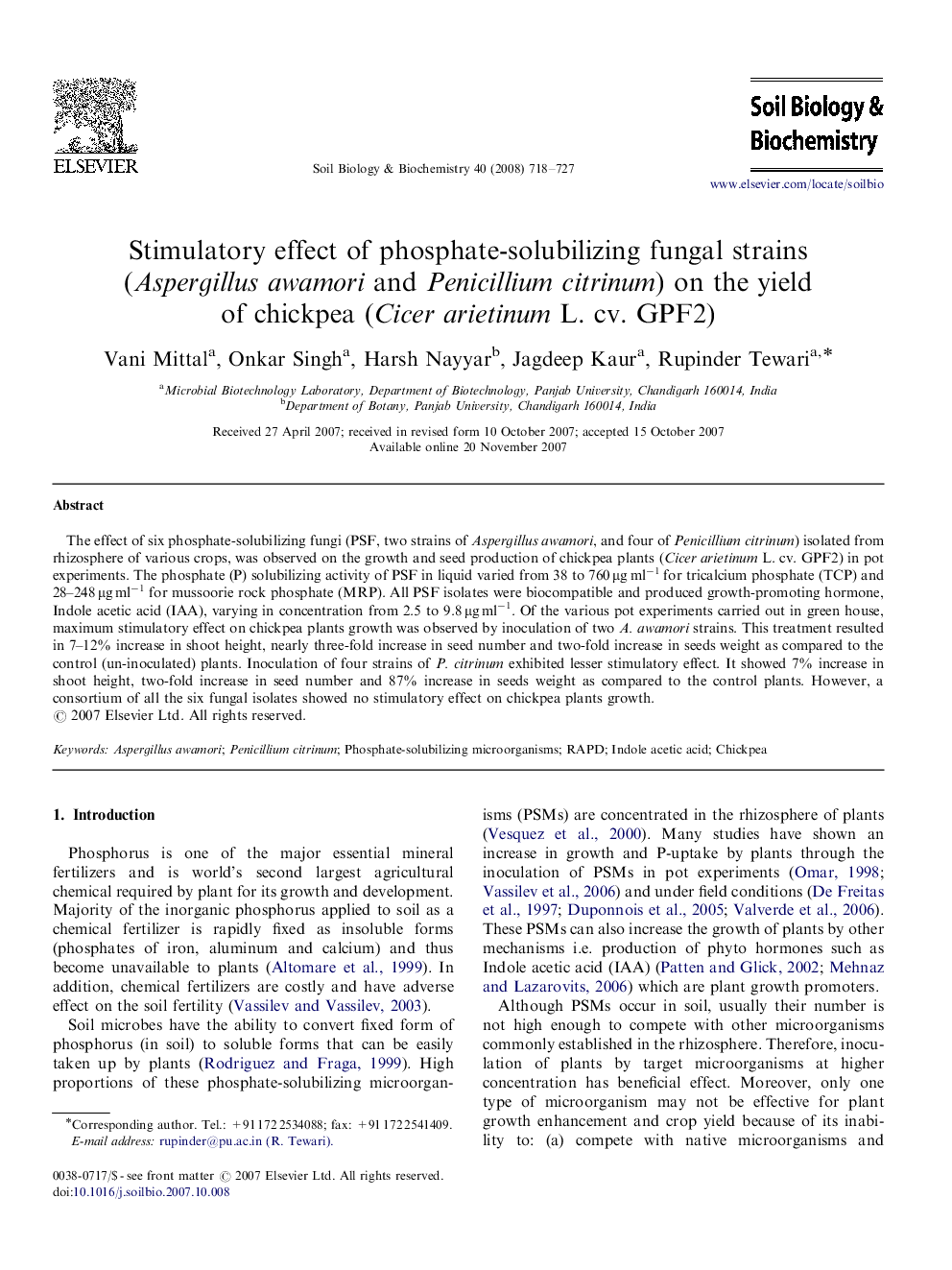| Article ID | Journal | Published Year | Pages | File Type |
|---|---|---|---|---|
| 2026998 | Soil Biology and Biochemistry | 2008 | 10 Pages |
The effect of six phosphate-solubilizing fungi (PSF, two strains of Aspergillus awamori, and four of Penicillium citrinum) isolated from rhizosphere of various crops, was observed on the growth and seed production of chickpea plants (Cicer arietinum L. cv. GPF2) in pot experiments. The phosphate (P) solubilizing activity of PSF in liquid varied from 38 to 760 μg ml−1 for tricalcium phosphate (TCP) and 28–248 μg ml−1 for mussoorie rock phosphate (MRP). All PSF isolates were biocompatible and produced growth-promoting hormone, Indole acetic acid (IAA), varying in concentration from 2.5 to 9.8 μg ml−1. Of the various pot experiments carried out in green house, maximum stimulatory effect on chickpea plants growth was observed by inoculation of two A. awamori strains. This treatment resulted in 7–12% increase in shoot height, nearly three-fold increase in seed number and two-fold increase in seeds weight as compared to the control (un-inoculated) plants. Inoculation of four strains of P. citrinum exhibited lesser stimulatory effect. It showed 7% increase in shoot height, two-fold increase in seed number and 87% increase in seeds weight as compared to the control plants. However, a consortium of all the six fungal isolates showed no stimulatory effect on chickpea plants growth.
